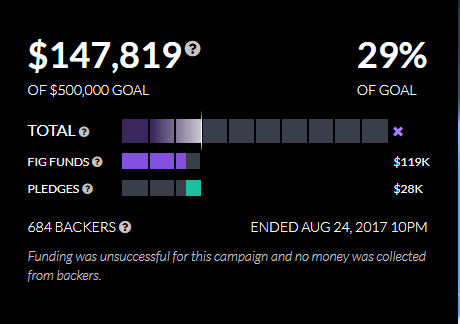
Featured Blog | This community-written post highlights the best of what the game industry has to offer. Read more like it on the Game Developer Blogs.
Against "Accessibility"
In which our hero argues against classical notions of video game accessibility.

Against "Accessibility"
Thanks to the work of advocates like AbleGamers there's been a strong uptick in the game industry's understanding of accessibility issues. But "accessibility" as a term is much broader than, and predates, the focus on disability and literal access. In this blog I'll argue for a narrow conception of "accessibility" while examining (and largely rejecting) previous uses of the term.
What Do We Mean By "Accessibility"?
I often hear that one thing holding back both game design and criticism is a lack of proper terminology. This is an excuse that makes less sense with each passing year and it's a flimsy excuse to begin with; it's hard to believe that new jargony terms are what's needed when we're so bad at using existing ones.
I can't count the number of times I've seen a new walking sim described as "unique" despite using not only familiar mechanics (walk around, examine objects, read graffiti, listen to audio logs) but a familiar central story as well: explore the abandoned place and figure out where the people went. Or how often "core gameplay loop" is used to describe something that is neither gameplay nor a loop. "Everything is political" is a common statement these days, but if everything is political then the word necessarily has no meaning. (Imagine trying to justify the claim that "everything is ham")
By my count the game industry regularly uses "accessibility" to refer to four or five distinct concepts, most of which are better described by other more specific words.
Actual accessibility
Immediate Understandability
Approachability
Difficulty
Conformance to Preference
Accessibility Meaning 1: Actual Accessibility

"There are many kinds of intelligence: practical, emotional. And then there's...actual intelligence, which is what I'm talking about.
What I'm calling "actual accessibility" is the one related to disability and access. This sort of accessibility is good. Making games more accommodating to people with disabilities is just a nice thing to do, and those changes are often helpful even to the non-disabled. Subtitles can help when people need to play with low volume, for people who aren't native speakers, or can rescue a game with sound mixing issues. (Such as in Xenoblade Chronicles X, where the music in cutscenes is regularly mixed too loud to hear the dialogue) A low health indicator that looks different not only in color but some other aspect is easier to pick out even for someone with no vision issues. It's up to each developer to determine the effort they put into accessibility but broadly speaking that effort is a good thing.
This use of "accessibility" — the plain English meaning — is fairly new in games. For a long time "accessibility" has primarily meant a mixture of lowering difficulty and "streamlining." If you find a developer interview from a decade ago about making their sequel more accessible it's almost certainly not about actual accessibility but instead about something like moving a game from PC to console and making it palatable to that audience.
Accessibility Meaning 2: Immediate Understandability
Disclaimer: when it comes to understandability, approachability, complexity, etc, there are accessibility issues related to cognitive functions. The following sections should be read as addressing "casualization," "streamlining" etc for the sake of mass appeal, while granting that those overlap with "actual accessibility." It's left to the reader to determine which sorts of streamlining changes are in service of genuine accessibility concerns and which are not.
Frequently when people use "accessible" what they mean is "streamlined" or "simplified." Why don't they just say that then? You'd have to ask them, but I'll suggest one reason here that I'll revisit later: "accessible" conveys a certain moral weight and importance; it's a word with a very positive connotation, whereas a term like "simplified" reads as neutral or negative.
If you're a Deus Ex 2 developer you probably don't want to say that your game has smaller maps and universal ammo because you think console gamers have smaller brains than PC Gamers — that sounds bad! That the game is being "made more accessible" sounds good — who could possibly be against accessibility?
One downside of using "accessibility" as marketing-speak is that gamers are now trained to roll their eyes and think "here we go again" when developers talk about making a game more accessible. Not because those gamers are against actual accessibility changes but because they're against accessibility as a euphemism for sacrificing core elements of a franchise in an attempt to broaden market penetration.
Is Immediate Understandability Good?
Not only am I opposed to using "accessibility" to mean "understandability" but I'm also opposed to the conventional wisdom on understandability. This may seem bonkers at first blush but I'm not convinced that immediate understandability is necessarily a good thing. (At least not across the board)
It pays to be a bit wary of conventional wisdom, especially when delivered in slogan form separate from any original justifying arguments. There are two related conventional wisdoms I'd like to examine: "easy to learn, hard to master" and the idea that while depth is good complexity is bad.
But lately I find myself questioning design as a way of understanding where games come from and what makes them work. There are so many great games in the world that don’t reflect good design principles...
...
Or take League of Legends. This game breaks so many rules of “good design”. It is a clone. It is over-complicated to the point of utter indecipherability. It is fussy, baroque, full of arbitrary, non-intuitive details (Last hitting? Inhibitors??). It makes no attempt to teach the player or draw them into its labyrinthian systems.
I certainly don't agree with everything in Against Design by Frank Lantz but the above point seems unassailable. (Well...minus the "clone" claim) And what's written above could just as easily apply to the entire MOBA genre or to any number of Steam survival games.
Just as there are people who like it when potential romantic partners play hard-to-get or are drawn to tall dark mysterious strangers there are people who like a coy games that don't readily reveal their mysteries of content and construction.
I've often heard people use Street Fighter 2, one of the most popular games of all time, as an example of "easy to learn, hard to master." But Street Fighter 2 is not particularly easy to learn. Compared to contemporary arcade games it was much more complicated with virtually zero instruction. The game introduced concepts that, while well-understood today, were novel then: blocking by holding back, special move motions, charge motions, combinations based on hit stun, cross-up attacks, cancelable attacks. The game had six buttons at a time when most games had two.
Street Fighter 2 was not intuitive or streamlined. Is was the polar opposite of streamlined, not "accessible" at all in the marketing-speak sense. What Street Fighter 2 was, however, was fun for people at all levels. It had great graphics and animations, detailed backgrounds and cool line-scrolling parallax foregrounds. It had catchy music. Even if you didn't know what you were doing you could pick Chun-Li and mash out some "wind kicks", or mash fierce punch as Guile to alternate (for a beginner seemingly at random) between a sweet backfist, a devastating uppercut and a suplex, each with excellent examples of what today we'd call "game feel". It's not that Street Fighter 2 is easy to learn, it's that it's fun even when you haven't learned it. And many people never learn it, content to wiggle the joystick and mash buttons forever.
Similar to "easy to learn, hard to master" is the notion that depth is good but complexity bad. This is a meme-level proposition typically supported with meme-level arguments, usually involving Chess. (The world needs another appeal to Chess like I need a hole in my head) There's a simple "proof of the pudding is in the tasting" counter-argument to the idea that complexity is bad: despite whatever rock-solid on-paper reasoning you claim to have plenty of people like it.
League of Legends is extremely complex. Not only are there many rules but as in a collectible card game the distinction between rules and content is thin. To play the game at a reasonable level you have to understand dozens of characters and hundreds of moves, and to play at a high level you have to understand that for over a hundred characters. There are also items to consider, jungle enemies and XP formulas, ability interactions that follow no intuitive logic and can only be learned through experimentation.
There's a notion that if a game is popular an "accessible" version of that game will be even more popular. But the streamlined version of League of Legends, Heroes of the Storm, is less popular. Maybe the right level of complexity for MOBAs is very high because the breadth is a main reason people like that style of game. When Street Fighter 2 came out 8 selectable characters seemed like a lot. Now people complain if there aren't at least 20. They demand breadth.
Every so often someone attempts to make a more "accessible" fighting game. Fantasy Strike didn't come close to reaching its goal on Fig and appears to be one of the worst-performing games on the platform. Rising Thunder was canceled while still in alpha. There doesn't appear to be high demand for streamlined fighting games, at least the non-transformative kind that takes the well-established Capcom formula and subtracts complexity. (As opposed to a more transformative, more apples-to-oranges game like Nidhogg)

This was the final result of the Fig campaign for Fantasy Strike. The vast majority of the funding was from internal "fig funds." Demand for the game just doesn't appear strong.
The belief that a streamlined game will have more mass appeal is for many a non-falsifiable religious one. Whenever a streamlined game does well it's evidence that the theory is sound, but whenever one does poorly it's dismissed as an irrelevant data point. But for every Monster Hunter: World there's a Marvel vs Capcom: Infinite; the track record of games that have been made more "accessible" for broader audiences is very mixed. Often these games lose their built-in audience while failing to capture a new one. I installed the demo for Dawn of War 3, played the first tutorial and never touched it again, even though Dawn of War 1 is my favorite RTS. When I read that Marvel vs Capcom: Infinite was reducing team size and removing assists I was worried, and that worry proved justified — personally I'm not interested in a Simple 2000 Marvel fighting game and the new audience the streamlining was supposed to unlock never materialized. Few people seem happy with the simplification of multiplayer maps in Titanfall 2 or the weapon system of Destiny 2, or with the 2-gun limit of Resistance 2. For these cases and hundreds more you can claim that removing complexity is a solid strategy that was just implemented poorly. But then can't I claim that improved graphics and a seamless map are the reasons Monster Hunter: World is doing well, and that it would do even better had it retained more complexity from previous versions? Or that increasing complexity is a great strategy and any counter-examples were also just done wrong?
Of course none of this means that all games should be needlessly complex or that obtuse UIs and unclear inputs are good. But I do think that "easy to learn, hard to master" is ultimately more a bumper sticker than a well-realized thought. Looking at Twitch popularity or Steam sales numbers I don't see any real indication that "easy to learn" is a slam-dunk value proposition. If anything I would argue that the PC games market leans towards games that have more "needless" complexity and that are somewhat fiddly and baroque — towards "PC-ass PC games." (For example: Kingdom Come: Deliverance) Even the "hard to master" half doesn't look so solid in an age of "cinematic experience" content-tourism games.
Not only is using "accessibility" to mean "immediate understandability" or "streamlining" not good word choice it also describes an overvalued concept.
Accessibility Meaning 3: Approachability
If meaning 2 of accessibility is "easy to grasp" then meaning 3 is "apparently easy to grasp"; meaning 2 but from the outside looking in.
This meaning is based on apparent nature, which means it can be a function of marketing rather than development. We see titles like Madden 2018 and Assassins's Creed: Origins instead of Madden 27 and Assassin's Creed 14 in part because those titles would indicate a buildup of mechanical plaque or essential narrative.
The arguments against this use of "accessibility" are similar to the previous. On a purely semantic level "approachability" or "welcoming" captures the intended meaning here much better than "accessible." And as with understandability I'm not sure that apparent understandability is as attractive as we think it is, for the same reasons I'm not sure about understandability itself. So once again I'm opposed to both the word choice and the concept it captures.
Looking at the Steam Top 100 for 2016, and considering only the gold and silver top 24 titles, by my estimation about half have a high apparent complexity. If you click through Stellaris the description on the store reads from "the makers of Crusader Kings and Europa Universalis", which themselves appear fairly unapproachable. One of the first reviews reads "Stellaris is one of those games where you have to invest a lot of time and effort into learning how to play", but that's not presented as a negative. Instead the implication is that that time and effort is rewarded.
Do people want approachable games? In some sense by definition the answer is yes. But the games people want to approach may not be the games we typically consider approachable.
Especially for games with the potential for community it's possible that a baroque appearance promises some fun communal problem-solving. Decades ago you might have heard the trick to beating King Hippo on the playground. In elementary school a girl once lent me her copy of Shadow of the Ninja (a hidden NES gem) in exchange for an explanation of how to get over that one-block gap in the sewer level of Ninja Turtles. (Just tap the jump button so that you don't bonk your head on the ledge above you. Get it together Kristina!) These days the equivalent of that sort of information exchange is playing ARK with your friends and sharing theories on how to best tame creatures or which items to craft first.
Some games foster community with heavy-handed multiplayer forced grouping, but even a mostly single-player game like Dark Souls can foster community through lore and mechanics that encourage players to band together intellectually. I got over the hump in Dark Souls when my friend from out of state visited and helped me get a Black Knight Sword and defeat the Gargoyles. And for multiplayer games it may be that players who fumble through an experience together end up appreciating both the experience and each other more, based on principles similar to boot camp or fraternity hazing. I've seen people remark that the Sea of Thieves beta had very little instruction but that is often framed positively, as it encouraged players to work together and led to wacky high-seas hijinks.

We're getting to the end, I swear!
Accessibility Meaning 4: Difficulty
There's a relationship between difficulty and accessibility though it's often oversimplified. Take a bullet hell game where the player can't see the bullets due to some visual impairment. In that case dramatically lowering the difficulty may make the game beatable but it doesn't address the real issue and delivers a very different, lesser qualitative experience. In many cases difficulty has no bearing on accessibility at all: lowering the difficulty of a game doesn't help someone who has problems making out the dialog in cutscenes or who can't play the game due to epilepsy concerns. Accessibility guidelines encourage granular options and describe a range of disabilities; being bad at videogames is not a disability, though it can be the result of one.
That said it's hard to object to optional difficulty tweaks, even as someone with contrarian leanings. While these topics may be contentious among fans or games media I don't get the sense that they are at all contentious among working developers. When Nintendo began introducing obvious helper methods in their games, starting with the Super Guide in New Super Mario Brothers Wii, there was an outcry from some corners but I sense only a small percentage of developers had any issue with it. The Mario games are made for all ages and the Super Guide is a way to help younger or less skilled players while being purely optional. Similar to the academic debate over ludology vs narrative the debate for or against systems like the Super Guide is performed almost entirely by outsiders.
Unlike the overrated concepts of real and apparent understandability, adjustable difficulty has been historically underrated. And while there is a distinction between accessibility and difficulty they are at least often related, so it's hard to object too strongly to the terms being intermingled.
Meaning 5: Accessibility as Conforming to Preference
This section is going to based heavily on Now Ubi’s opened the door, can we have our “Skip Boss Fight” button?, so you should probably skim that before continuing.
There are two arguments made in favor of the titular button: one is that boss fights present an accessibility issue, and the other is that the author just doesn't like boss fights. These are unrelated and I find the conflation of personal taste with accessibility concerns does the piece no favors.
Accessibility guidelines they are typically highly specific. I can't remember seeing "bosses" as an accessibility category. If I had to sum up accessibility guidelines in one sentence it would be "give people fine-grained control", and a button to skip bosses is the opposite of that.
It's hard to imagine that someone who likes boss fights but has a disability would be happy with a skip boss fights button except as a failsafe. If I lost my hand in a farm accident (don't laugh, it happened to my college roommate) I'd still want to do boss fights and have the same relative experience, which might mean adjusting the difficulty downwards. I certainly wouldn't want to skip them entirely — losing a hand wouldn't also make me lose my love of boss battles.
The idea that skipping inaccessible content is an accessibility solution is a bit strange. It's like telling your wheelchair-bound friend that the solution to a concert venue that's not wheelchair-accessible is to skip the concert because the band playing it is awful. It only makes sense if your friend didn't want to attend in the first place! Otherwise the solution is just the problem restated.
Where this piece really falls down for me is when it focuses on inclusiveness, in particular the line "Gaming has always been inclusive." Accessibility concerns in games are relatively recent — show me an NES game with a colorblind mode or an SNES game that allows you to tone down bright flashes. Games are historically non-inclusive of people with disabilities, which is why organizations like AbleGamers exist. Issues like this throughout the piece make it read like accessibility concerns appear largely to prop up and add import to the author's personal tastes.
Developers aren't obligated to provide a laundry list of accessibility options but it's at least a nice thing to do. It feels like there's some moral weight to accessibility concerns. There is, in my mind, no moral weight to preference concerns. Game development is a not a service hospitality industry in which the customer is always right. I've seen all sorts of wonky debates comparing mediums: well on a DVD you can skip the part of a movie you don't like. Well in a movie theater you can't. All that nonsense aside, if you can't skip the parts of a game you dislike: you'll live. In an age of carefully crafted "we're listeningto each and every fan" PR responses I suppose that's not something you're supposed to say but there it is.

To ignore accessibility concerns is to perpetuate de facto, if unintentional, discrimination. (That is why the Americans with Disabilities Act exists) "People who dislike boss fights" are not a historically oppressed people in need of redress and creating a product that people dislike is not discrimination. An accessibility issue is when someone wants to experience something and can't, not when they can experience something but don't want to. The way these two are intermingled in the piece, as if they are on even footing, only makes accessibility concerns appear trivial. To be as blunt as possible: if some disability prevents you from playing a game that's bad. If some preference prevents you from enjoying a game that's life. Accessibility is important in a way that preference simply isn't, and I'd find the piece much stronger had it chosen one angle or the other.
I'm very much opposed to the idea that accessibility and preference even belong in the same conversation.

To credit the author, I believe this is the original source.
Words: They Mean Stuff
There's a strong temptation to overuse weighty words and as a result most lose meaning over time. In political spheres both left and right have suites of meaningless words. "Problematic" is used to describe things that pose absolutely no problem to anyone. "Mansplaining" and "gaslighting" once both had real meanings; now they both simply mean "someone disagreed with me." The right uses "treason" to mean "unclapfulness" and "cultural marxism" to mean "anything I dislike."
Accessibility is interesting in that it has a sharper meaning now than in the past. Historically it was often trotted out as a euphemism for questionable streamlining efforts in the way that "VR content experience" is used in place of "short tech demo." But accessibility is increasingly used in a specific literal sense.
And that's a good thing. We already have perfectly good words to describe simplicity or understandability or approachability.
I've been reading up on Monster Hunter: World and many reviews praise the game for being more accessible in the traditional video game parlance. It has better pacing, it's more visually attractive, systems like tracking monsters and crafting items are simplified. But I also see accessibility complaints: particularly that the font is small and hard to read. (To be fair I've also seen people praise some "actual accessibility" stuff) If you do a search for "Monster Hunter World accessibility" there are many results, but for each piece that is about accessibility there are a dozen that aren't. In nearly every case "most accessible" could be replaced with "most approachable" or "most understandable" or "best entry point" or "most beginner-friendly" and the result would read better.
There's a challenge to expanding while preserving the meaning of accessibility. It's easy to consider only the most obvious cases: someone is colorblind or missing a hand. (Pro tip: never stick your arm into a thresher without telling the person charged with turning it on) Expanding that to someone with a repetitive stress injury or chronic fatigue or whatever else is good. I've seen someone suggest that games that don't run well on old computers is an accessibility issue. That seems reasonable to me — being unable to afford a new computer isn't a disability but it is a question of access. (And like many disabilities lack of money is largely hereditary) What is not good is blurring the lines between accessibility, inclusivity, preference and marketing strategies, such that decisions motivated by mass appeal are touted as accessibility, or that adding Burger King styled "have it your way" options are "inclusive" of people with strong idiosyncratic preferences.
Addressing access and addressing preference can look similar but these are still distinct concepts. To make it as clear as possible: "if you don't like it buy something else" doesn't work for people with disabilities as there isn't enough other accessible work out there to make this a realistic proposition, and their issue is access, not dislike. That line is fine, however, if someone just doesn't like the graphics on level three.
Why Against "Accessibility"
We're now at the final part of the blog, where like the worst endings of Electric Dreams I use the last two minutes to explain my exact meaning to the assumed dummies in the audience.
I'm not against accessibility, hence the quotes. I'm against the broad use of the term, for two reasons. The first is semantic: that "accessibility" is used in a variety of ways that have little to do with access and that are better covered by other more specific words, freeing "accessibility" to also have a more specific meaning. Use the right words for things!
The second is that while the concept captured by "actual accessibility" is of value the other concepts described by it are more dubious, despite the conventional wisdom surrounding them. Not only is "accessibility" probably not the right word to use when describing combining ammo types or shrinking maps but those changes often don't result in the intended increase in mass-market appeal.
You made it!

Read more about:
Featured BlogsAbout the Author(s)
You May Also Like













